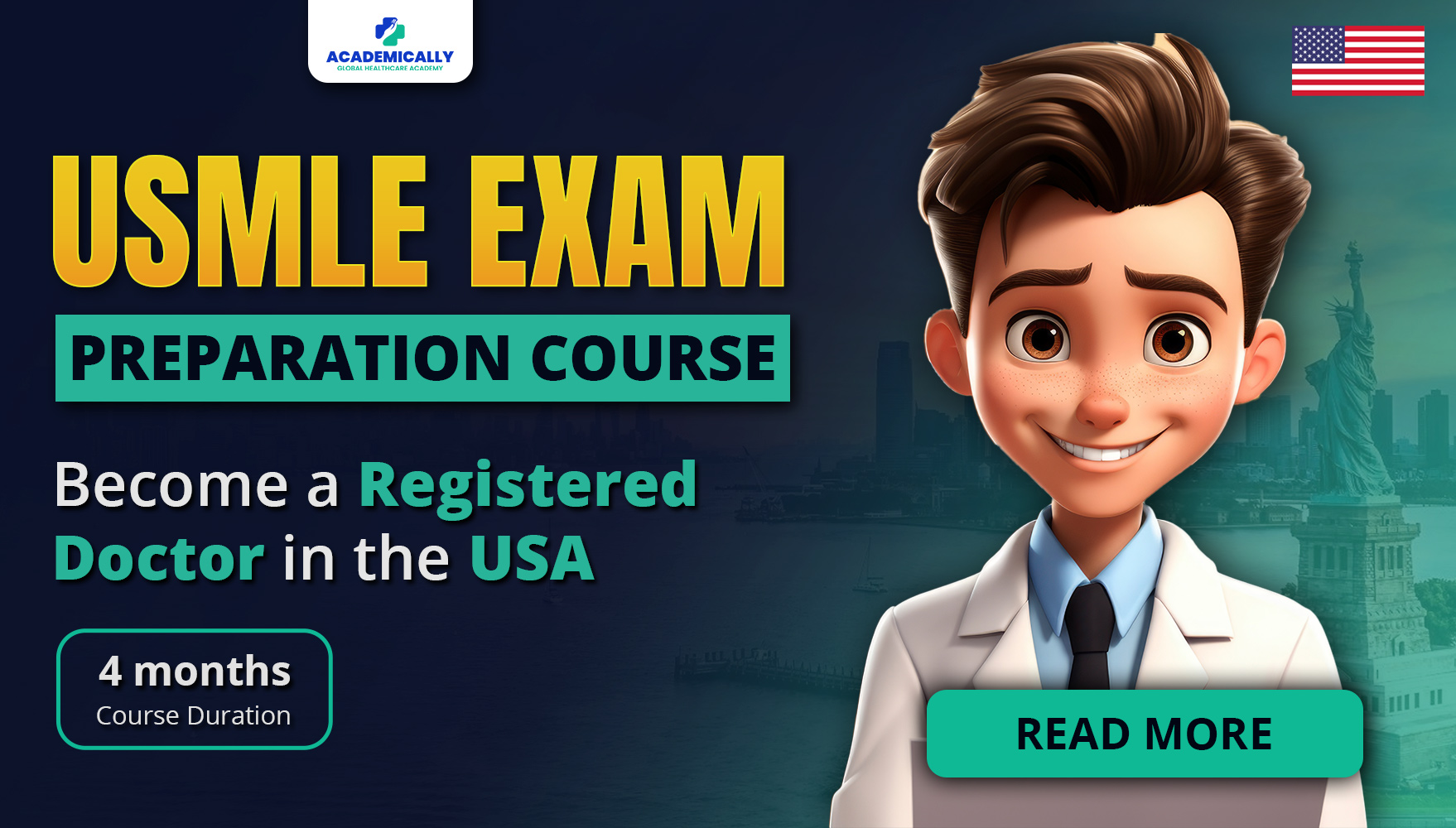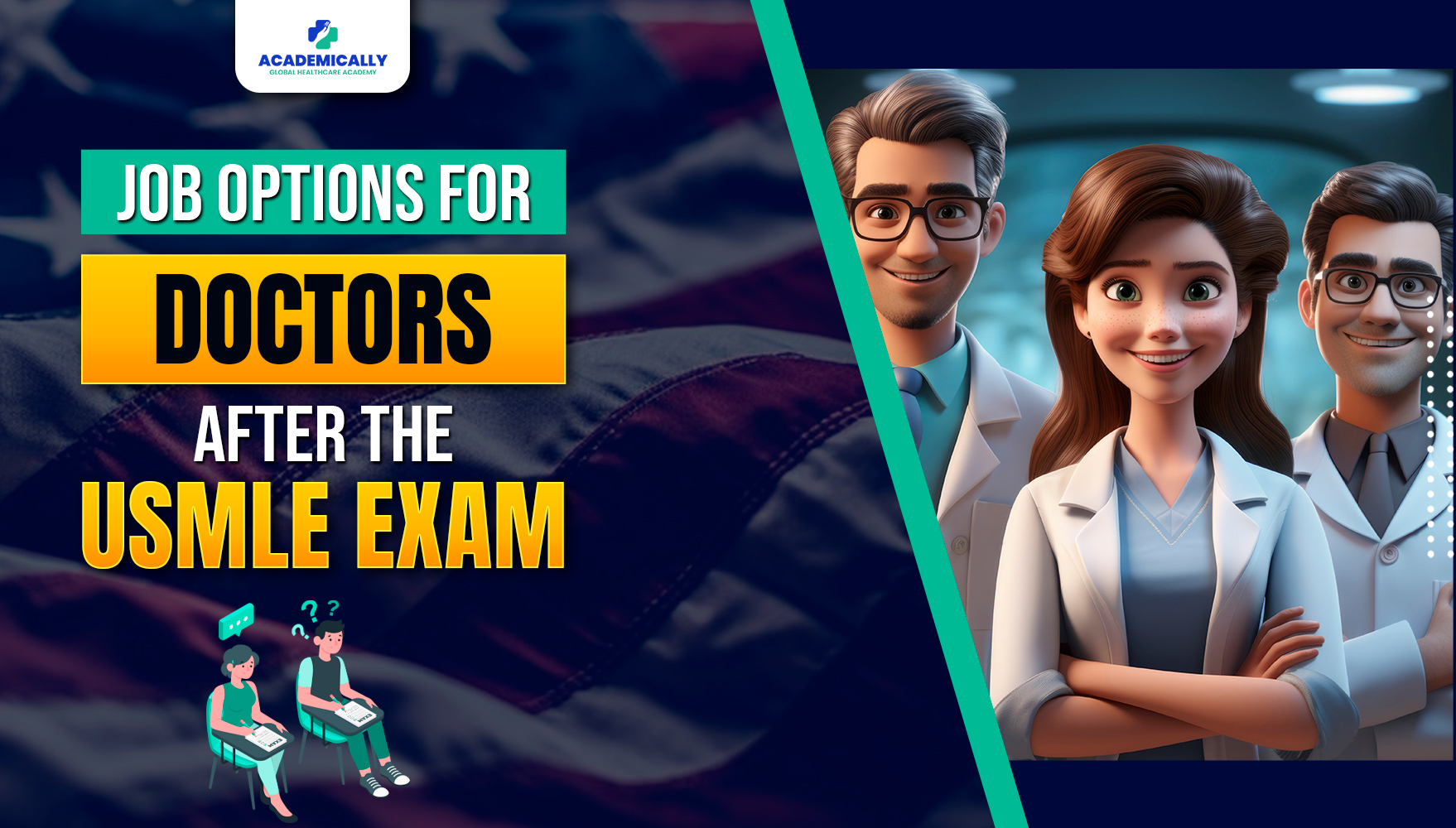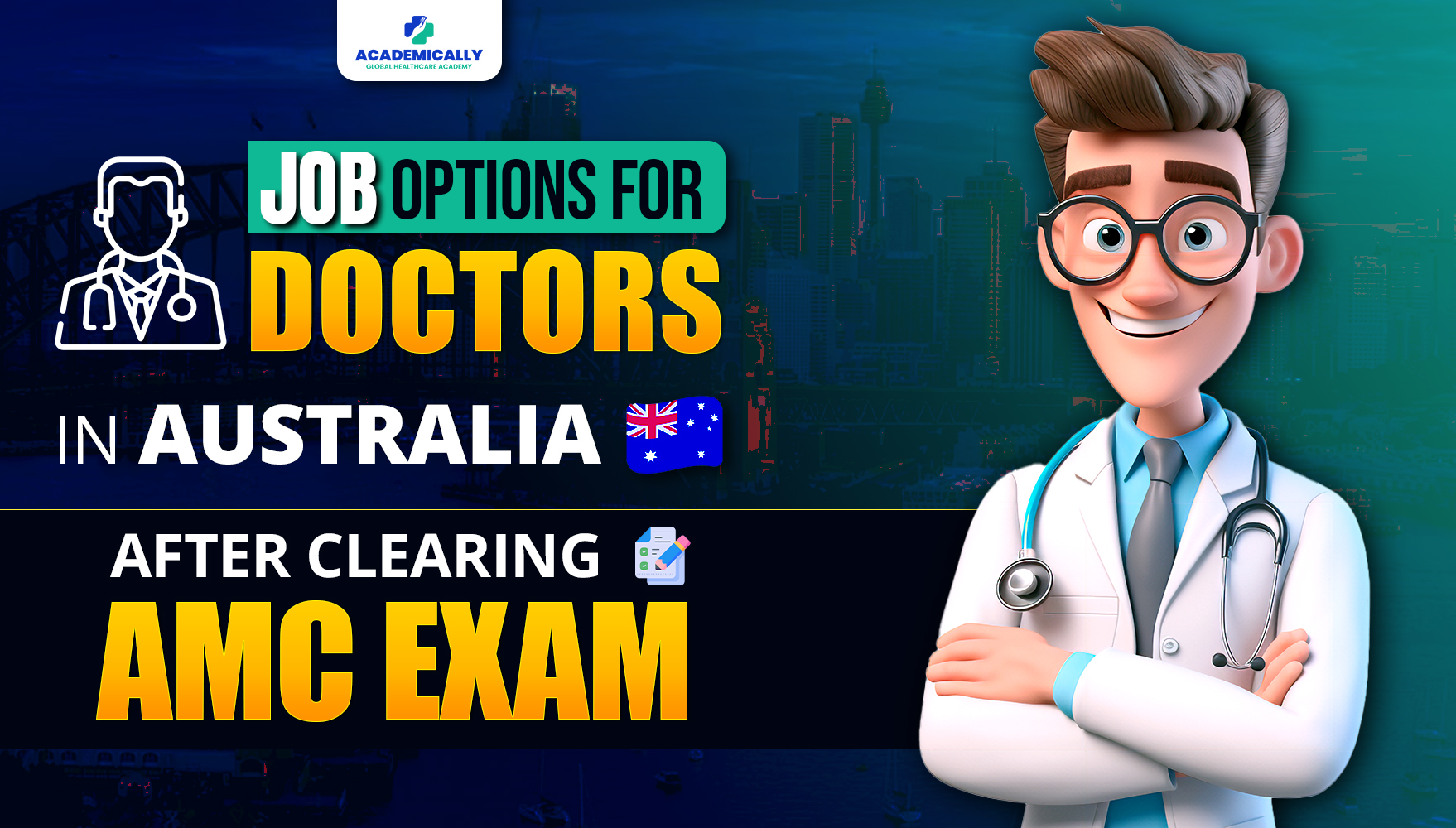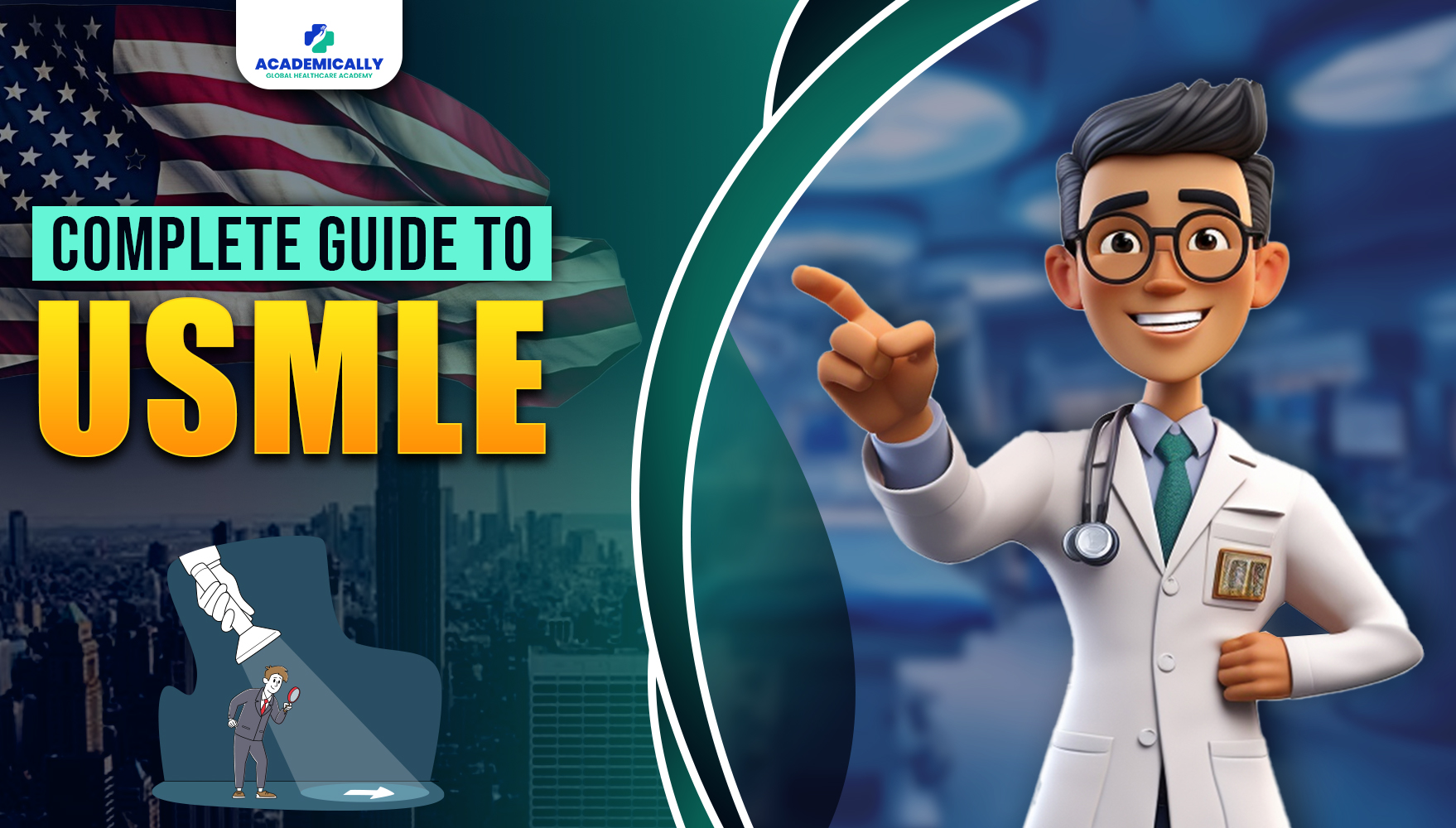What are the Career Opportunities After the USMLE Exam?
- Academic Career
- Medical Writing and Journalism
- Academic Medicine
- Medical Education and Administration
- Clinical Career
- Specialised Medical Practice
- Primary Care Physicians
- Hospitalist
- Emergency Medicine
- Surgical Specialties
- Anaesthesiologist
- Radiologist
- Pathologist
- Psychiatrist
- Primary Care Subspecialties
- Other Options
- Public Health
- Pharmaceutical and Biotech Industry
- Healthcare Consulting
- Medical and Surgical Sales
- Telemedicine
- Conclusion
- FAQs
Academic Career
Knowledge is power. Your knowledge of medicine can pave the way for an academic career. An academic career refers to a career pathway where the medical knowledge of the doctor is taken in the direction of academia or research. This gives them the chance to continuously seek knowledge. For those doctors who are passionate about imparting their knowledge, diving into research, or providing guidance to aspirants, this is the most suitable option. Here are some of the opportunities for them.
Medical Writing and Journalism
Doctors with strong communication skills and a flair for writing may choose careers in medical journalism or medical writing. This includes creating content for medical publications, health websites, and healthcare organisations or even contributing to popular science media. This role allows doctors to communicate medical information to a broader audience.
Academic Medicine
For those who enjoy teaching and research, a career in academic medicine may be appealing. Academic doctors split their time between clinical practice, teaching medical students and residents, and conducting research. This path allows individuals to contribute to medical education and advance the field through scholarly activities.
Medical Education and Administration
Physicians with a passion for education but not necessarily interested in clinical practice can pursue careers in medical education and administration. Opportunities exist in curriculum development, program coordination, and administration of medical schools or healthcare institutions.
Clinical Career
A clinical career of doctors typically refers to the medical pathway in which they provide direct patient care and are directly involved in the diagnosis, treatment, and management of medical conditions. It will be a complete hands-on experience in places like hospitals, clinics, healthcare facilities, and so on.
Clinical careers are characterised by direct patient interaction, the application of medical knowledge and skills, and a focus on promoting and maintaining the health and well-being of individuals. Here are a few examples.
Specialised Medical Practice
After passing the USMLE, doctors can opt for specialised medical practice in areas such as cardiology, neurology, oncology, or pediatrics. Specialisation involves in-depth training and expertise in a specific field, allowing physicians to focus on particular patient populations or medical conditions.
Primary Care Physicians
Primary care physicians play a pivotal role in preventive care and managing a broad range of health issues. They serve as the first point of contact for patients and are crucial in coordinating overall healthcare.
Hospitalist
Hospitalists are physicians who specialise in the care of hospitalised patients. They collaborate with specialists, coordinate treatment plans, and ensure continuity of care during a patient's hospital stay.
Emergency Medicine
Doctors with a passion for quick decision-making and high-pressure environments may choose a career in emergency medicine. They diagnose and treat acute medical conditions in emergency departments.
Surgical Specialties
Surgeons perform surgical procedures to treat a variety of conditions. Subspecialties include general surgery, orthopaedic surgery, cardiovascular surgery, and more. Surgical careers involve a combination of pre-operative, operative, and post-operative care.
Anaesthesiologist
Anaesthesiologists focus on administering anaesthesia during surgical procedures, ensuring patient comfort and safety. They are integral members of the surgical team and play a crucial role in pain management.
Radiologist
Radiologists specialise in medical imaging, interpreting X-rays, MRIs, CT scans, and other diagnostic images. They provide essential insights for diagnosis and treatment planning.
Pathologist
Pathologists analyse laboratory samples such as tissues and fluids to diagnose diseases. They play a critical role in understanding the nature and progression of illnesses.
Psychiatrist
Doctors interested in mental health can pursue a career in psychiatry. Psychiatrists diagnose and treat mental health disorders, often employing a combination of therapy and medication.
Primary Care Subspecialties
Physicians can further specialise within primary care by focusing on areas like family medicine, internal medicine, or pediatrics. These roles involve comprehensive care for specific patient demographics.
Other Options
Apart from academic and clinical opportunities, there are other areas where doctors have great opportunities.
Public Health
Doctors interested in promoting community health and preventing diseases can find fulfilling careers in public health. Opportunities include working for government agencies, non-profit organisations, or international health organisations. Public health professionals focus on disease prevention, health education, and policy development.
Pharmaceutical and Biotech Industry
The pharmaceutical and biotech industry is a rapidly growing sector that welcomes doctors with expertise in various medical fields. Roles include medical affairs, clinical research, regulatory affairs, and medical writing. Professionals in this industry contribute to drug development, clinical trials, and the overall advancement of medical science.
Healthcare Consulting
Healthcare consulting offers a unique avenue for physicians to apply their medical knowledge to solve broader healthcare system issues. Consultants advise organisations on improving efficiency, quality of care, and overall healthcare delivery. This role may involve working for consulting firms, government agencies, or healthcare organisations.
Medical and Surgical Sales
Medical and surgical sales offer an alternative career path for doctors in the US seeking opportunities beyond traditional clinical practice. In this dynamic field, doctors leverage their medical expertise to promote and sell pharmaceuticals, medical devices, or surgical equipment to healthcare providers, institutions, and professionals.
Telemedicine
With the increasing use of technology in healthcare, telemedicine has gained prominence. Doctors can provide medical consultations remotely, expanding access to healthcare services. This option offers flexibility in work hours and the opportunity to reach patients in underserved areas.

Conclusion
The USMLE opens doors to a myriad of career options for physicians, extending beyond traditional clinical practice. Tackling the USMLE exam takes you to great heights. It acts as a positive catalyst for career advancement and personal growth. In today's ever-evolving field of healthcare, opportunities spring up right, left, and centre. After rigorous learning and training that you have done, listen to your heart and find your calling. If you choose what you love to do, be it clinical practice, medical writing, or academic research, you can have a fruitful and wholesome career.
Now, in case you are dreaming of getting started with the USMLE preparation with the goal of moving to the US, reach out to Academically for guidance. The in-depth preparation course curated by industry experts not only trains you to face the exam but also takes care of areas such as the documentation process, hassle-free migration, etc.
Fill up this form for a free one on one counselling session.





